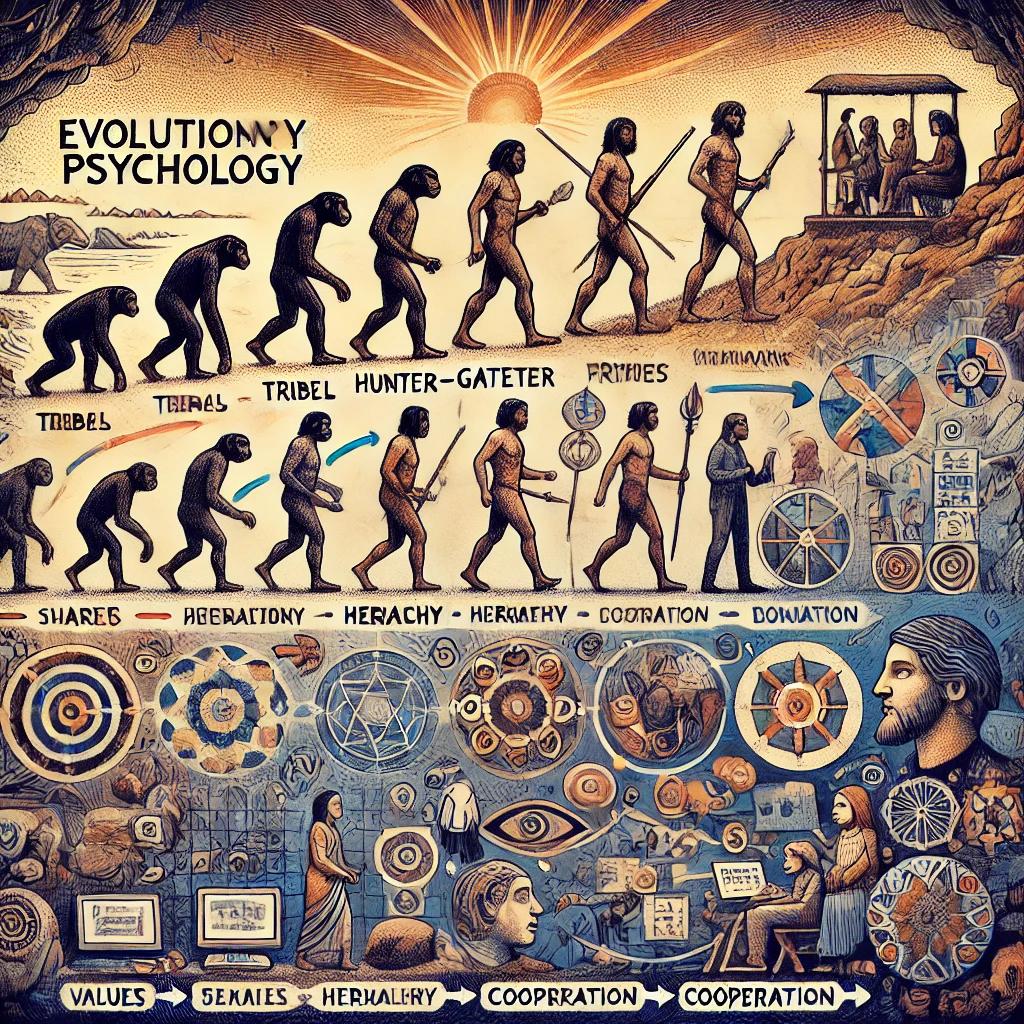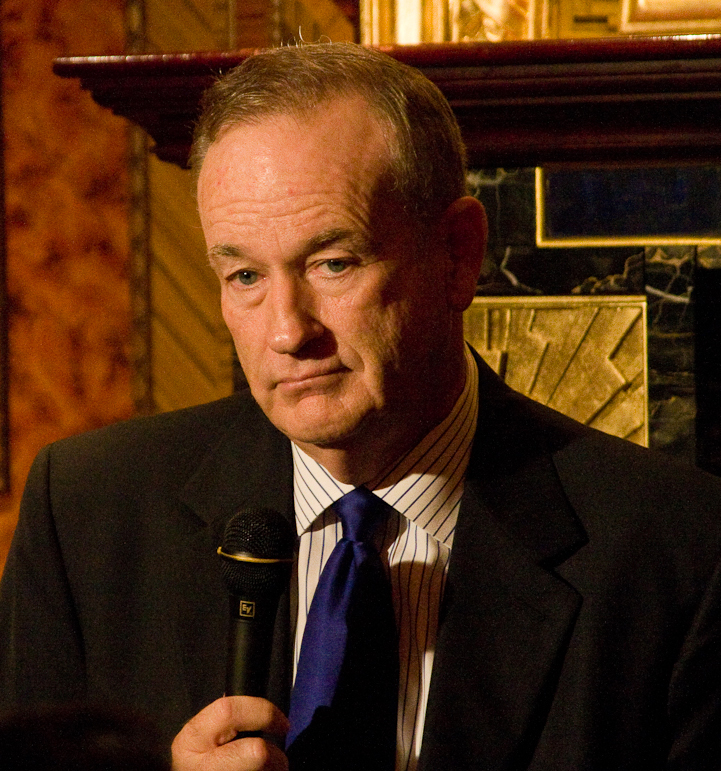Conservatism is not rational or enlightened. Instead, it is a survival mechanism rooted in tribal instincts. It thrives on fear, hierarchy, and rigid loyalty. These traits evolved to maintain order in early human societies. Conservatives claim moral superiority, yet their values are little more than animalistic behaviors dressed up as patriotism and religion. The irony is that conservative leaders do not believe in what they preach. Hypocrisy is not a flaw—it is their foundation. And it cannot get worse.
Evolutionary psychology: How ideologies evolved

Humans developed ideologies for survival. Early hunter-gatherers needed cooperation, so shared values and social structures formed. Groups that followed strong moral codes had an advantage over those that were disorganized. Over time, these values became ideologies that reinforced loyalty and stability.
Conservatism arose from the need for order. It favors tradition, hierarchy, and resistance to change. In contrast, progressive ideologies emerged as societies grew and required adaptability. However, conservative thinking persists because it taps into deep evolutionary instincts—fear of outsiders, submission to authority, and preference for stability over uncertainty. Those in power use these instincts to control the masses.
The preference for authority and hostility toward outsiders is not intellectual superiority. It is biological conditioning. Conservative ideology exploits this primitive wiring, making individuals more likely to conform and resist progress. Meanwhile, conservative leaders rarely follow the rules they impose on others.
Evolution and ideological division
The divide between conservatism and progressivism is not new. Throughout human history, societies have split between those who resist change and those who embrace it. Evolutionary psychology explains these differences through r/K selection theory. Conservatives follow a K-strategy, which prioritizes stability, hierarchy, and in-group loyalty. This mindset helped early human tribes protect their resources and maintain order. Progressives, on the other hand, follow an r-strategy, which favors adaptability, cooperation, and expansion. Their approach helped societies innovate, grow, and integrate new ideas.
Both mindsets have been essential for survival, but in modern society, conservative instincts often create obstacles to progress. Fear of outsiders leads to racism and xenophobia. Resistance to change slows technological and social advancement. Hierarchical thinking preserves corruption and economic inequality. These tendencies persist because they are deeply ingrained in human psychology. Conservatives do not reject progress because they are ignorant; they do so because their evolutionary instincts make them more resistant to change.
Xenophobia: The in-group and out-group mentality
Xenophobia is not just a political tool. It is an ancient survival instinct. Early humans relied on strong in-group bonds for security. Distrusting outsiders helped protect resources and maintain order. This instinct remains hardwired in the brain. Conservatives weaponize it to shape nationalistic policies, justify immigration restrictions, and fuel racial division.
They frame these policies as necessary for security. In reality, they use them to reinforce their power. Republican leaders stoke fear of immigrants, refugees, and minorities, despite clear evidence that diversity strengthens economies. They rely on fear, not facts.
Historically, conservatives pushed xenophobic policies like the Chinese Exclusion Act, segregation laws, and the Muslim ban. They claim they are protecting national identity, but they are manipulating psychological impulses. Fear of outsiders has been exploited for centuries to maintain control.
Yet, conservative leaders do not follow their own rhetoric. Many who oppose immigration hire undocumented workers. Those who claim to protect “American values” engage in shady foreign deals. Their nationalism is not about loyalty. It is about power.
However, conservatives do not just promote xenophobia against outsiders. They enforce it within their own societies, create in-group enemies, turning their own citizens into targets. Also, they push policies against LGBTQ+ individuals, women, and religious minorities. They label them as threats to the “traditional order.” This internal xenophobia serves the same purpose as external nationalism. It strengthens their political base by rallying hatred against those who do not conform. Instead of uniting people, conservatism fuels division. It ensures constant fear and a never-ending battle against imagined enemies.
Xenophobia as a national policy
Conservatives weaponize it to shape nationalistic policies, justify immigration restrictions, and fuel racial division.
They frame these policies as necessary for security. In reality, they use them to reinforce their power. Republican leaders stoke fear of immigrants, refugees, and minorities, despite clear evidence that diversity strengthens economies. They rely on fear, not facts.
Yet, conservative leaders do not follow their own rhetoric. Many who oppose immigration hire undocumented workers. Those who claim to protect “American values” engage in shady foreign deals. Their nationalism is not about loyalty. It is about power.
Conservative leaders and their hypocrisy
Conservative politicians claim to defend morality, family values, and tradition. Yet, they are repeatedly exposed as frauds. They engage in extramarital affairs, financial crimes, and secret indulgences. Many closeted gay politicians fight against LGBTQ+ rights while hiding their own identities. Corruption is rampant among those who claim to fight corruption.
Their hypocrisy extends to their supposed religious beliefs. Christianity, the faith they claim to uphold, is fundamentally opposed to their actions. The teachings of Christ emphasize compassion, humility, and care for the poor. Yet, conservative leaders push policies that harm the most vulnerable while enriching the wealthy. They ignore Christian teachings on honesty and integrity while using religion as a political weapon.
Bill O’Reilly, a truly conservative person

Bill O’Reilly, a champion of conservative values, was accused of multiple instances of sexual harassment, leading to massive settlements and his departure from Fox News. Mark Foley, who pushed for stricter laws on child exploitation, was caught sending explicit messages to underage pages. Larry Craig, an anti-LGBTQ+ Republican, was arrested for soliciting sex in a public restroom. Jim Bakker, the televangelist who preached morality, was convicted of fraud and exposed for sexual misconduct.
More recently, Jerry Falwell Jr. resigned over financial and sexual scandals. Newt Gingrich condemned infidelity while having multiple affairs. Eric Greitens, a Republican governor who ran on family values, resigned after allegations of blackmail and assault. Donald Trump, who built his base on Christian conservatism, has been accused of multiple affairs and hush-money payments.
Tons of scandals
The hypocrisy does not stop there. Roy Moore, a staunchly anti-LGBTQ+ Republican judge, was accused of pursuing relationships with underage girls when he was in his 30s. Matt Gaetz, a loud voice in right-wing politics, has been under federal investigation for sex trafficking and paying a minor for sex.
Hypocrisy also extends to those who police morality for others. Josh Duggar, a former reality TV star and conservative activist who advocated for “family values,” was convicted of possessing child pornography.
Control, not morals
Conservatism is about control, not morals. Its leaders break every rule they impose. They survive because their followers are trained to ignore the hypocrisy as long as fear and division keep them loyal. Their own faith condemns their actions, yet they twist Christianity into a political tool while violating its core teachings at every turn.
Hypocrisy: Financial scheme and abuse of minor
The hypocrisy does not stop there. Dennis Hastert, former Republican Speaker of the House, was sentenced to prison for a financial scheme that covered up his past sexual abuse of minors.
Hypocrisy also extends to those who police morality for others. Ralph Shortey, a Republican lawmaker who pushed anti-LGBTQ+ policies, was arrested for soliciting sex from a minor.
Conservative politicians claim to defend morality, family values, and tradition. Yet, they are repeatedly exposed as frauds. They engage in extramarital affairs, financial crimes, and secret indulgences. Many closeted gay politicians fight against LGBTQ+ rights while hiding their own identities. Corruption is rampant among those who claim to fight corruption.
Donald Trump, who built his base on Christian conservatism, has been accused of multiple affairs and hush-money payments.
Conservatism is about control, not morals. Its leaders break every rule they impose. They survive because their followers are trained to ignore the hypocrisy as long as fear and division keep them loyal.
Republican lawmakers and their service to lobbyists

Republican lawmakers do not operate on principles. Instead, they serve Big Banks, super-rich families, and lobbyists. They abandon their own policies for profit, preach fiscal responsibility while inflating the deficit, champion family values while drowning in scandals, and vow to fight corruption while actively enabling it.
Yet, there are three areas where they do not waver: military spending, support for Israel, and tax cuts for the wealthy. These are not ideological commitments. They are financial obligations to their biggest donors. Defense contractors, Wall Street (aka super-rich families and their bankers), and foreign lobbies ensure that these policies remain untouched.
It is known that an average lawmaker is firm on very few issues (for example three), other depends entirely on lobbyists who finance his campaing.
Reports indicate that lawmakers are encouraged to spend between 30 hours per week fundraising in call centers near Capitol Hill.
Meanwhile, Republican lawmakers deregulate industries that harm the public. They block healthcare reforms while taking money from pharmaceutical companies. They call government intervention “tyranny” while pushing authoritarian policies on reproductive rights and free speech. Their allegiance is not to their voters—it is to the highest bidder.
The U.S. clientelistic networks: Judges, attorneys, and police
The United States is plagued by clientelism. Judges, attorneys, and police officers—many of them conservative—operate in a system built on corruption and loyalty. These networks protect the powerful and punish the weak.
Republicans claim to stand for law and order, but their judicial system is built on backroom deals. Republican-backed judges shield elite corruption. Police unions, deeply embedded in conservative politics, protect officers guilty of misconduct. District attorneys tied to conservative networks refuse to prosecute financial crimes and corporate fraud.
Republicans could dismantle these corrupt networks. They do not because they rely on them. The legal system they pretend to defend exists to serve them. They call for accountability while ensuring their own immunity. This is not law and order. This is organized corruption.
How conservatism serves the super-rich families and banks
Conservatism is the perfect ideology for the elite. It protects wealth, dismantles social safety nets, and keeps power in the hands of a few. It is designed to enrich the rich and keep the working class distracted.
Big banks, hedge funds, and multinational corporations thrive under conservative policies. Financial institutions like Goldman Sachs and JPMorgan Chase maintain strong ties with Republican lawmakers, ensuring that deregulation continues. Wealthy donors push narratives of “self-reliance” while rigging the system in their favor.
Billionaires like Charles Koch and the Walton family spend billions ensuring that conservative politicians protect their financial interests. They fund campaigns that attack social programs, push deregulation, and dismantle labor protections. Conservatism is not about principles. It is about making sure the rich get richer while the poor stay distracted.
Conservatism as a tool for the elite
Conservatives claim to defend individual freedoms. In reality, they push mass surveillance, voter suppression, and authoritarian policies. They expand government spying programs while preaching limited government, proclaim to defend democracy while gerrymandering districts and suppressing votes. They say they stand for the people, but they serve the 1%.
The Patriot Act, warrantless wiretapping, and expanded police surveillance have been championed by conservative lawmakers. These tools of social control are used to monitor dissent, criminalize activism, and maintain power. Republicans fight for corporate freedom, not personal freedom.
They do not care about democracy. They serve the elite. By eroding voting rights, stacking courts with partisan judges, and ensuring that big business controls legislation, they maintain an illusion of democracy while ensuring corporate rule.
How conservative policies manufacture poverty
Conservatives claim to support economic growth, but their policies are designed to manufacture poverty and keep wealth concentrated at the top. They do this by dismantling social safety nets, suppressing wages, and ensuring that corporations and the ultra-wealthy control the economy. While they promote the idea of self-reliance, their policies actively make it harder for the working class to escape financial hardship.
One of the primary ways conservatives manufacture poverty is through tax policy. They push for massive tax cuts that overwhelmingly benefit the rich while slashing government programs that support lower-income Americans. By reducing funding for healthcare, education, and social welfare, they create conditions where the poor remain trapped in cycles of hardship. At the same time, they cut corporate taxes, allowing big businesses to hoard wealth while avoiding their responsibility to society.
Beyond taxation, conservatives weaken labor protections to ensure that workers remain economically vulnerable. They fight against raising the minimum wage, claiming it would harm businesses, even though some studies show that higher wages boost economic growth. They attack unions, making it harder for workers to organize and demand fair pay. By keeping wages low and limiting collective bargaining, they guarantee that corporations can maximize profits at the expense of the workforce.
Another way conservative policies manufacture poverty is by restricting access to essential services like healthcare and education. They oppose universal healthcare, ensuring that medical care remains expensive and out of reach for many. This forces lower-income individuals into medical debt, further deepening financial inequality. Similarly, they defund public education, making it harder for working-class students to access quality schooling and higher education. Without affordable education, social mobility declines, keeping entire generations locked in economic struggle.
The highest incarceration rate in the world

Conservatives also use mass incarceration as an economic tool to reinforce poverty. Harsh sentencing laws, privatized prisons, and aggressive policing disproportionately target low-income communities. By criminalizing poverty—through cash bail, harsh drug laws, and excessive fines—they create legal barriers that prevent people from finding stable employment and housing. The prison system itself has become a profit-driven industry, with private companies benefiting from high incarceration rates.
Despite claiming to promote job creation, conservative policies allow corporations to outsource jobs, weaken worker protections, and prioritize shareholder profits over employee well-being. Deregulation allows big businesses to exploit labor and avoid accountability. Republican lawmakers do not care about job security for the average worker; their economic policies serve the interests of the wealthy and multinational corporations.
Conservatism is not about economic growth for all. It is about ensuring that poverty remains a tool of control. By keeping the working class struggling, conservative leaders prevent them from organizing, voting against their interests, or demanding structural change. The manufactured economic struggle ensures that people are too exhausted to fight back, too dependent on unstable jobs to take risks, and too divided by fear-based narratives to unite against the real source of their suffering—the economic elite who control conservative politics.
Conservatism and fear psychology
Conservatism thrives on fear. Psychological research shows that conservatives have a more reactive amygdala, the brain’s fear-processing center. This heightened threat response makes them more susceptible to messages about danger, whether real or exaggerated. In contrast, progressives tend to rely more on the prefrontal cortex, which processes logic and complex reasoning. This biological wiring explains why conservatives respond more strongly to messages about crime, terrorism, or immigration, even when statistical evidence contradicts their fears. Political campaigns and media outlets weaponize these instincts, keeping voters in a constant state of anxiety. Studies show that when people feel threatened—by economic instability, crime, or social change—they are more likely to adopt authoritarian beliefs.
This is why conservative leaders manufacture crises. They exaggerate crime statistics, stoke fear of immigrants, and spread misinformation about social movements. Their goal is not to solve problems but to make people feel so threatened that they surrender their rights in exchange for security. The more fear they create, the more power they gain.
Religious manipulation: Faith as comfort and control

Religion plays an essential role in this process, acting both as a source of emotional relief and a mechanism for enforcing obedience. Faith provides comfort during uncertainty, giving people a sense of purpose and security. It promises that suffering has meaning, that injustice will be corrected in the afterlife, and that divine justice prevails. This psychological mechanism is powerful, especially during economic hardship, war, or political instability. When people face extreme stress, they turn to faith for certainty. Instead of demanding systemic change, they often resign themselves to suffering, believing it is part of a greater plan. Conservative politicians exploit this by increasing religious rhetoric during times of crisis, using faith to pacify dissent.
While faith can be a source of personal strength, it is also an effective tool for maintaining social hierarchy. Religious texts contain countless rules about obedience—to God, to kings, to husbands, and to authority. Conservative leaders highlight these passages while ignoring the teachings about compassion, justice, and humility. They promote submission to power while silencing calls for equality and reform. Prosperity gospel preachers claim that wealth is a sign of divine favor, justifying economic inequality. Evangelical leaders argue that opposing government policies is rebellion against God, discouraging activism. By focusing on issues like sexuality and gender roles while ignoring biblical teachings on wealth and corruption, conservatives use religion not as a moral guide but as a weapon of control.
The psychological appeal of conservatism
Many people continue to support conservatism despite its contradictions because it appeals to deep-seated psychological instincts. Conservative ideology resonates with those who value stability over uncertainty, authority over individual autonomy, and order over change. Even when the system works against them, conservative followers remain loyal because they believe hierarchy and structure are necessary for survival. The conservative mindset views change as dangerous, preferring the familiar even when it is harmful. This is why authoritarian followers ignore hypocrisy. They are conditioned to prioritize obedience and order over fairness and logic.
System justification theory helps explain why people defend systems that exploit them. Instead of recognizing that they are being manipulated, they rationalize inequality as natural or deserved. This belief prevents them from seeking change and allows corrupt leaders to maintain control. Conservative ideology provides a framework that simplifies the world into clear categories of good and evil, order and chaos. This black-and-white thinking makes it easier for individuals to accept authority without questioning its legitimacy.
Conservatism as a crisis-response mechanism
Conservatism gains power during times of crisis. When people feel uncertain about the future, they cling to traditional values and seek strong leaders who promise order. Throughout history, conservative movements have surged during periods of social and economic instability. After the September 11 attacks, conservatives expanded government surveillance and militarism under the guise of security. Following the 2008 financial crash, they used populist rhetoric to redirect public anger toward immigrants instead of the banks responsible for the crisis. During the COVID-19 pandemic, they weaponized fear and misinformation to oppose science while protecting corporate profits.
These patterns reveal that conservatism is not a philosophy but a reactionary force. It does not thrive in times of stability, when people feel secure enough to embrace progress. Instead, it depends on instability to justify authoritarian measures and social control. Conservative leaders do not want solutions; they want chaos, because fear keeps people loyal.
International conservatism and hypocrisy
Conservative hypocrisy is not exclusive to the United States. Around the world, right-wing leaders promote nationalism and traditional values while secretly engaging in corruption and financial self-interest. In Russia, Vladimir Putin claims to defend Christian values while his oligarchs hoard wealth in offshore accounts. In the United Kingdom, Brexit leaders promised to protect British sovereignty but secured private financial deals with foreign investors. Brazilian Jair Bolsonaro attacked environmental activists while allowing corporations to destroy the Amazon rainforest. In India, Narendra Modi’s government uses religious nationalism to suppress political opposition while favoring billionaire industrialists.
Across every country, conservatism serves the same purpose. It convinces the poor to fight for the interests of the rich, uses religious and nationalistic rhetoric to distract from economic exploitation, stokes fear of immigrants, minorities, and progressives to create division. No matter the country, the formula remains unchanged: manipulate fear, suppress opposition, and ensure that economic power stays in the hands of a small elite.
Conclusion: Republicans will sell anything, including their own values
Republican lawmakers are not bound by ideology, morality, or patriotism. Their loyalty belongs to the highest bidder. They claim to stand for family values while covering for pedophiles and serial adulterers, claim to fight corruption while drowning in bribes and shady deals. They claim to defend democracy while rigging elections and suppressing votes. Every position they take is negotiable, provided the right donors pay the right price.
They sell out their own constituents to Wall Street and corporate executives. Conservatives gut workers’ rights, suppress wages, and block healthcare reforms—not out of principle, but because the billionaires who fund their campaigns demand it. They cut social programs while funneling tax cuts to the ultra-wealthy. They let pharmaceutical companies price-gouge patients, banks prey on the poor, and industries pollute the environment, all because their financial backers insist. Their service to the rich is absolute, even if it means throwing their own voters into poverty.
Foreing policy, LGBTQ+, immigration and dubious faith
Their foreign policy is just as corrupt. They do not support Israel out of religious conviction but because powerful lobbies make sure they do. Also, they may not expand military budgets out of patriotism but because defense contractors depend on endless war. They praise authoritarian leaders, ignore human rights abuses, and fund dictatorships when it benefits their donors. They have no moral boundaries. There is no line they will not cross if the money is right.
Even their supposed cultural convictions are for sale. They stir up fear about immigration, LGBTQ+ rights, and racial equality to keep their base distracted, yet behind closed doors, they hire undocumented workers, solicit sex in secret, and betray the very values they claim to uphold. Their entire political identity is a performance, crafted to manipulate voters while ensuring the rich and powerful maintain control.
Republicans do not care about tradition, faith, or national identity. They do not believe in small government, free markets, or personal freedom. What they do believe is money, power, and nothing else. They will sell out their country, their supporters, and even their own families if it means protecting the interests of the super-rich. There is no principle they will not betray, no law they will not break, and no value they will not discard. Conservatism is not an ideology—it is a business, and for Republican lawmakers, everything is for sale.

Leave a Reply